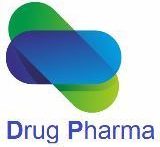
Supplements have become increasingly popular in recent years as people seek to improve their health and well-being. From vitamins and minerals to herbal extracts and protein powders, there are a wide variety of supplements available on the market. But what are supplements, exactly, and are they really necessary for good health?
Supplements are products that are taken orally and contain one or more dietary ingredients, such as vitamins, minerals, herbs, amino acids, or enzymes. They are intended to supplement the diet and provide nutrients that may be lacking in a person’s daily intake. Some supplements are also used to support overall health and well-being, boost athletic performance or aid in weight loss.
Are supplements necessary for you?
Whether or not supplements are necessary depends on your situation and dietary habits. For most people, getting their essential nutrients from a healthy, balanced diet is sufficient. However, there are certain situations where supplements may be necessary or beneficial:
- Nutrient deficiencies: If you have a nutrient deficiency, such as a vitamin D deficiency, taking a supplement may be necessary to help you get back to healthy levels.
- Certain dietary restrictions: If you follow a restrictive diet, such as a vegan or vegetarian diet, you may need to supplement with vitamins and minerals that are not easily obtained from plant-based sources.
- Increased nutrient needs: If you are pregnant, breastfeeding, or an athlete, your nutrient needs may be higher than the average person, and taking supplements may help you meet those increased needs.
- Medical conditions: Certain medical conditions may require additional nutrient support, and supplements may be recommended by your healthcare provider.
However, it’s important to note that not all supplements are necessary or beneficial. In some cases, taking too much of certain supplements can be harmful. It’s important to do your research and talk to your healthcare provider before starting any supplement regimen. In general, it’s best to focus on getting your nutrients from a healthy, balanced diet and supplement only when necessary.
When it comes to taking supplements, it can be hard to know which ones are truly necessary and which ones are simply overhyped. While some supplements can provide important nutrients that are difficult to obtain through diet alone, others may have little to no benefit, or may even be harmful. Here are some of the supplements that you may need and the ones you can skip:
Supplements you need:
There are many different types of supplements available, but some of the most common include multivitamins, omega-3 fatty acids, probiotics, vitamin D, and protein powders. Each of these supplements provides unique benefits and can help to support different aspects of health.
Necessary vitamins supplements
- Multivitamins: Multivitamins are one of the most popular types of supplements, and they typically contain a variety of vitamins and minerals essential for good health. A good quality multivitamin can provide a broad range of essential vitamins and minerals that are often lacking in our diets. Look for a multivitamin that contains vitamins A, C, D, E, and K, as well as B vitamins and minerals like calcium, magnesium, and zinc. These supplements can help to support immune function, promote healthy bones and teeth, and aid in the production of red blood cells.
- Omega-3 fatty acids: Omega-3 fatty acids are another popular supplement, and they are typically derived from fish oil. These supplements are rich in essential fatty acids that can help to reduce inflammation, improve brain function, and support heart health. They can be found in fatty fish like salmon, but if you don’t eat fish regularly, consider taking a fish oil supplement.
- Probiotics: Probiotics are supplements that contain live bacteria and yeasts that are beneficial for digestive health. Probiotics are beneficial bacteria that live in our gut and help support digestive health and immune function. You can get probiotics from fermented foods like yogurt and kimchi, but if you don’t eat these foods regularly, consider taking a probiotic supplement. These supplements can help to improve digestion, boost immune function, and reduce inflammation in the gut.
- Vitamin D: Vitamin D is important for bone health, immune function, and mood regulation. Vitamin D supplements are commonly used to support bone health, but they also play a role in immune function and may help to reduce the risk of certain diseases, such as multiple sclerosis and some types of cancer. While we can get vitamin D from sunlight, many people don’t get enough, especially during the winter months. Consider taking a vitamin D supplement to ensure you’re getting enough.
- Athletes and fitness enthusiasts often use protein powders to support muscle growth and recovery after exercise. These supplements are typically made from whey or plant-based proteins and can help to increase muscle mass and strength.
Supplements you can skip:
- Biotin: Biotin is often marketed as a supplement for healthy hair, skin, and nails, but there is little evidence to support these claims. Most people get enough biotin from their diet, so there is no need to take a supplement.
- Collagen: Collagen supplements are often marketed for skin health and anti-aging, but there is little evidence to support these claims. Collagen is a protein that is found in our skin, but taking a supplement is unlikely to have any noticeable effect.
- Vitamin C: While vitamin C is important for immune function and skin health, most people get enough from their diet. Taking a high-dose vitamin C supplement is unlikely to provide any additional benefit.
- Iron: Iron is an important nutrient that helps transport oxygen in the blood, but most people get enough from their diet. Unless you have been diagnosed with iron deficiency anemia, there is no need to take an iron supplement.
Important note
While supplements can be beneficial for some people, it’s important to remember that they are not a replacement for a healthy diet. The best way to get the nutrients your body needs is to eat a varied and balanced diet that includes plenty of fruits, vegetables, whole grains, lean proteins, and healthy fats.
It’s also important to note that supplements can interact with medications and other supplements, so it’s important to talk to your doctor or a qualified healthcare professional before taking any new supplements. They can help you determine which supplements are right for you and ensure that you are taking them safely and appropriately.
Conclusion
In conclusion, supplements can be a valuable addition to a healthy lifestyle, but they should not be relied on as a sole source of nutrition. If you are considering taking supplements, it’s important to do your research, talk to your doctor, and choose high-quality products from reputable manufacturers. With the right approach, supplements can help to support overall health and well-being.
